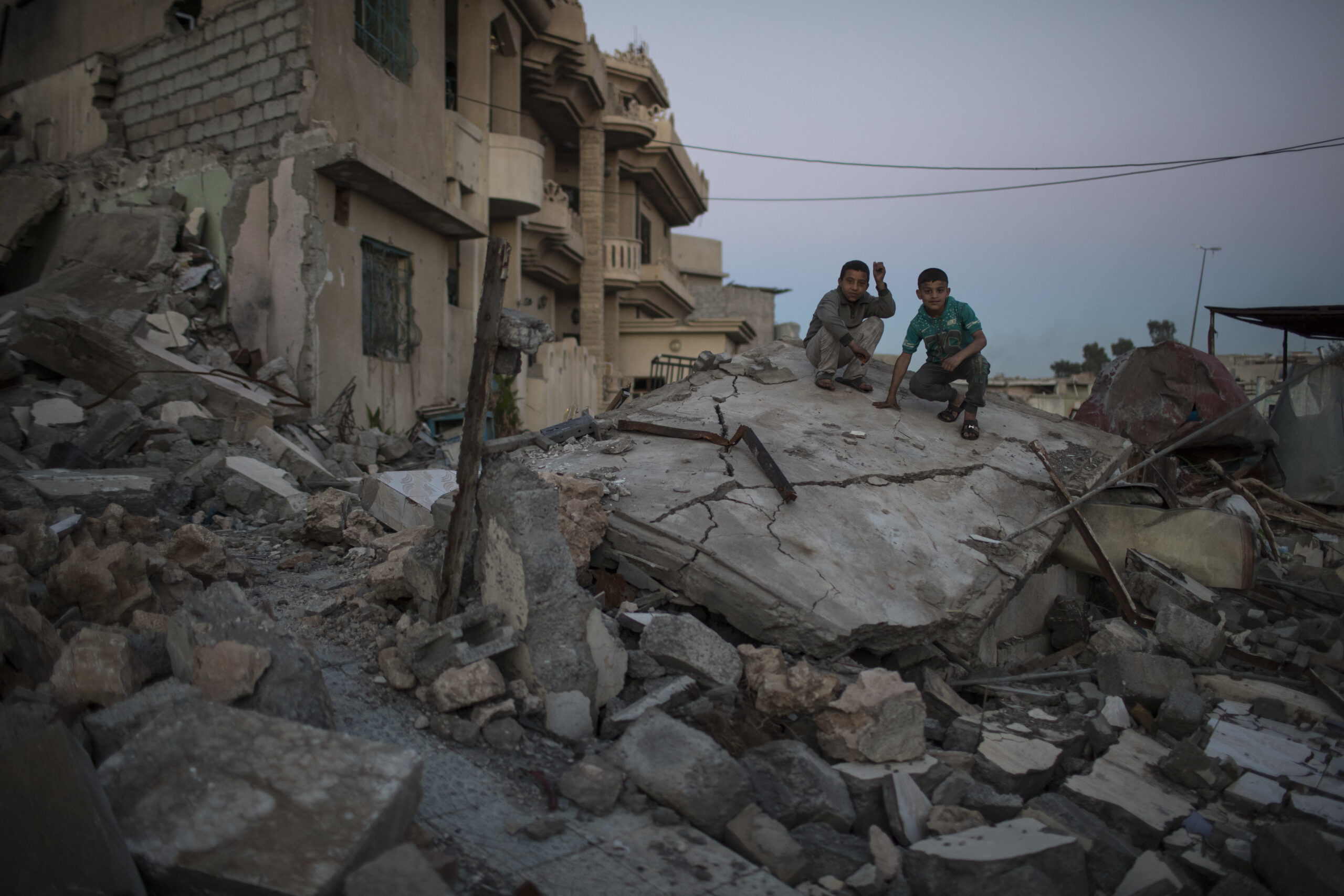After nearly nine long months of bloody battle for Iraq’s second-largest city, Prime Minister Haider al-Abadi arrived in Mosul and congratulated Iraq’s armed forces for their victory over the Islamic State, according to multiple news sources. ISIS militants ruled the city for three years.
Much of Mosul has been left in ruins and the battle resulted in the deaths of thousands of civilians, while nearly one million are displaced, according to Reuters. Security forces still face threats however, and must clear houses that have been “rigged with explosive booby-traps so civilians can return and services can be restored,” The New York Times reported.
The U.S. leads an international coalition that backed Iraqi forces by conducting airstrikes as well as provided assistance to forces on the ground. Iraqi forces still suffered major losses, and while the Iraqi government does not release casualty numbers “a funding request from the U.S. Department of Defense said the elite Counter Terrorism Service, which has spearheaded the fight in Mosul, had suffered 40 percent losses,” Reuters reported.
The broader fight is far from over, as other smaller cities and towns in the country remain under an ISIS stronghold. “It’s going to continue to be hard every day,” Col. Pat Work told the Times. He is the commanding officer of the Second Brigade, 82nd Airborne Division, which is enacting the American advisory role in Mosul.
“Iraqi security forces need to be on the top of their game, and we need to be over their shoulder helping them as they move through this transition to consolidate gains and really sink their hold in on the west side,” Work said. “ISIS will challenge this.” ISIS put up a strong fight at the end of the battle, and even resorted to sending female suicide bombers to carry out attacks.
7. In recent days, troops are seeing tactics not used before in Mosul battle, including female suicide bomber. A soldier shows me image of 1 pic.twitter.com/S3d1l75Gri
— Rukmini Callimachi (@rcallimachi) July 9, 2017
“I have been with the Iraqi Army for 40 years,” Maj. Gen. Sami al-Aradi, a commander of Iraq’s special forces, told the Times. “I have participated in all of the battles of Iraq, but I’ve never seen anything like the battle for the old city,” he added. “We have been fighting for each meter. And when I say we have been fighting for each meter, I mean it literally.”
Restoring life and infrastructure in Mosul will be the next difficult task. Reuters reported that the Department of Defense has requested a little more than $1.2 billion to continue supporting Iraqi forces inside the city, and the United Nations estimated basic infrastructure repair to cost more than $1 billion.
“When the fighting stops, the humanitarian crisis continues,” Lise Grande, the deputy special representative for Iraq for the United Nations secretary general, told the Times.
3. US officials have compared the fight in Mosul to the intensity of warfare in World War II. In the Old City, the scene is bleak pic.twitter.com/6kr33k4Vg5
— Rukmini Callimachi (@rcallimachi) July 9, 2017


